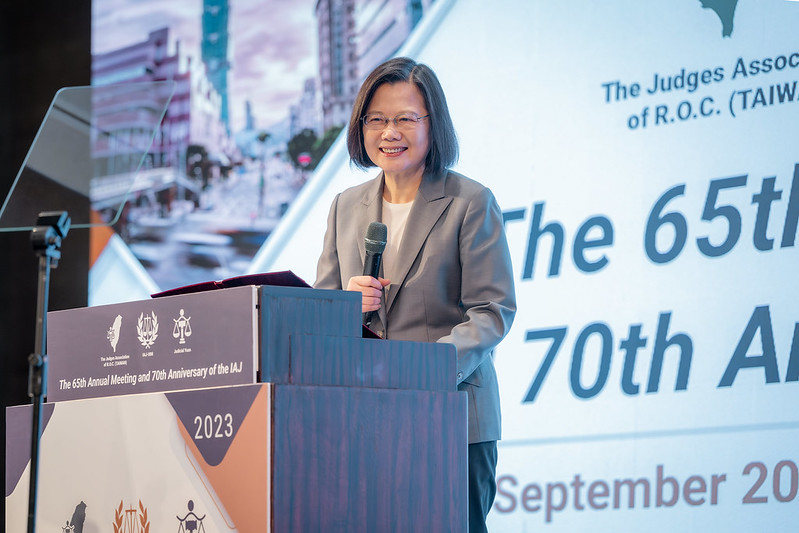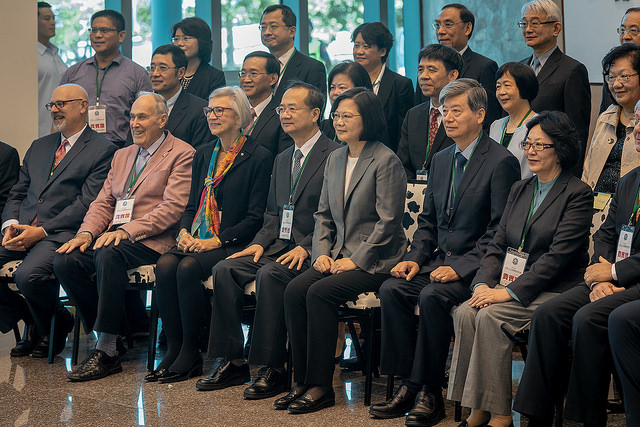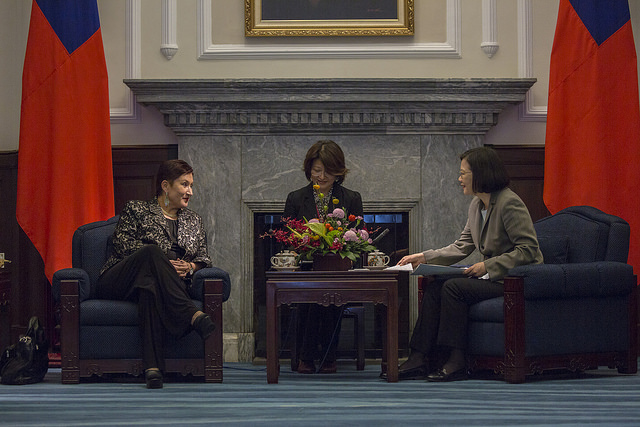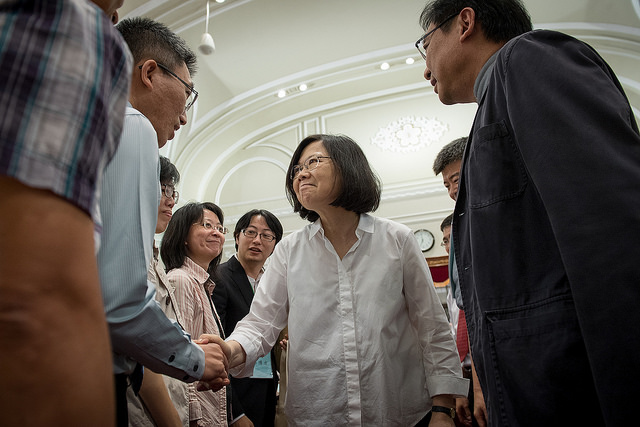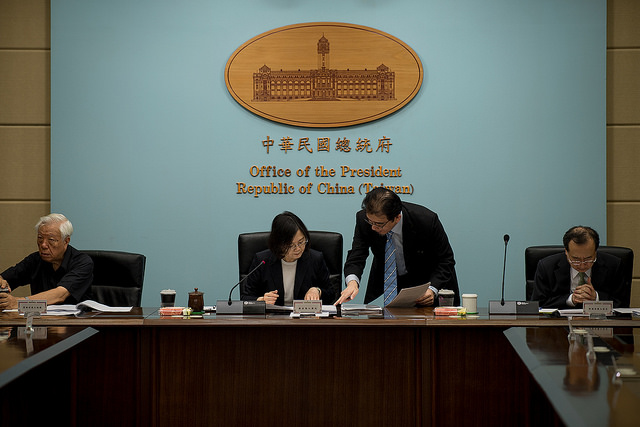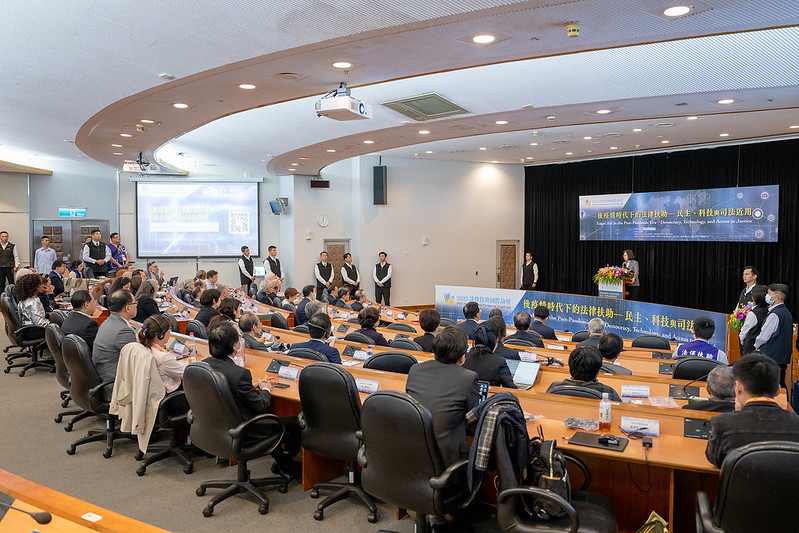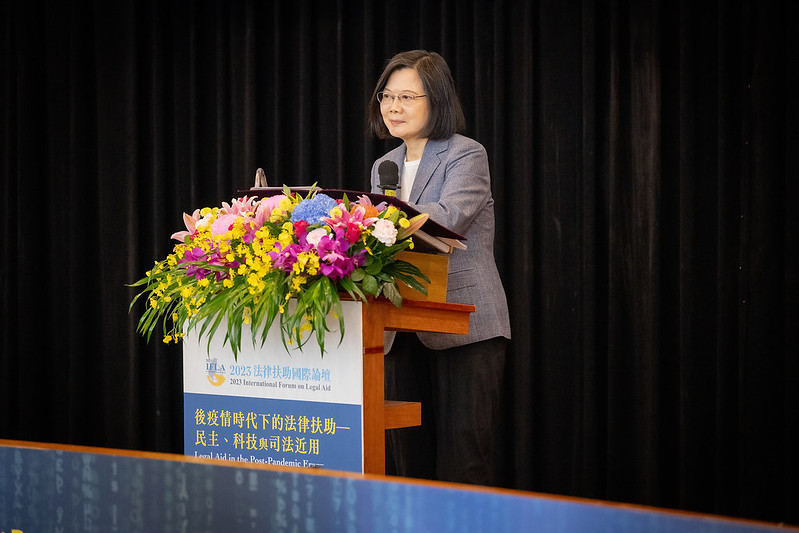News & activities
 News releases
News releases
On the morning of November 13, President Tsai Ing-wen attended the opening of the 2023 International Forum on Legal Aid. In remarks, President Tsai stated that over the past seven years, Taiwan has striven to promote judicial reform in three respects, those being judicial reform for the people, reform for a professional and impartial judicial system, and reform for diverse participation in the judicial system. She said that we are improving structural issues through these three respects, as we want a judicial system that is close to the people, trusted by the people, and can function as the last line of defense for justice. The president emphasized that judicial reform is a challenge for everyone in the legal profession and is also a movement for change that requires the whole population to take part, adding that Taiwan will work with the international community to legally defend human rights and advance the development of global democracy and the rule of law.
The following are President Tsai's remarks:
I want to first thank the Legal Aid Foundation for hosting the fifth International Forum on Legal Aid. This is a gathering of experts and academics from home and abroad to focus on current world developments and discuss important legal issues, particularly legal aid issues. In particular, I would like to thank the distinguished guests from overseas who traveled to Taiwan to be with us here.
The forum has responded to the impact of the Russia-Ukraine war by inviting Ukrainian representatives to participate online to address the topic of legal aid and the crisis of democracy and human rights. This year, you will also discuss the role and function of legal aid under the challenges of the pandemic and technology developments. I believe the exchanges at this forum will not only deepen links between Taiwan and the rest of the world, but also promote human rights and advance the development of legal aid services in our countries.
In Taiwan, we are committed to investing resources so that everyone has equal access to justice, legal representation, and services through the Legal Aid Foundation. For example, the foundation assists government agencies by undertaking legal aid cases in labor disputes and providing legal aid services for indigenous peoples as well as people with disabilities. The government and the foundation work together to give people from all walks of life access to the legal aid services that they need. The foundation has also actively participated in our renewed efforts to reform our judicial system since 2016, and in the follow-up implementation of the reform plan. With its frontline experience, the foundation reflects public opinion and offers important suggestions to jointly make changes to Taiwan's judicial system.
With your indulgence, let me say a few words about our work on judicial reform since 2016. Judicial reform is no easy task. It is a challenge for everyone in the legal profession. And it is also a movement for change that requires the whole population to take part. We want a judicial system that is close to the people, trusted by the people, and can function as the last line of defense for justice. That is why we are improving structural issues in three respects.
First, we need judicial reform for the people. We want judicial reform to meet people's needs, protect people's rights, and defend people's interests. For example, in the Crime Victim Rights Protection Act enacted this year, victims and their relatives can receive assistance from the government in a more understanding and respectful way.
Second, we need reform for a professional and impartial judicial system. Only a professional and impartial judicial system can effectively make fair rulings and win the trust of the people. By setting up expert courts and tribunals, cases in specific fields can be properly adjudicated, thus improving the quality of rulings. The recently established Intellectual Property Court and Constitutional Court have fulfilled this purpose. In 2020, we set up labor professional courts in all Taiwan's courts to fairly deliberate labor disputes and better protect the right to effective remedy.
Third, we need reform for diverse participation in the judicial system. We generate social trust by engaging the people in the judicial process. The Citizen Judges Act, which was implemented this year, allows people to participate in trials and understand how the judiciary functions. This also brings diverse perspectives and experiences to the process and the result of a trial, making decisions better thought out and more in line with public opinion.
In addition to making structural adjustments and changes to the legal system, we have made significant progress in non-structural policies that are closely related to judicial reform, such as antidrug and anti-corruption measures.
Over the past seven years, the government has invested over NT$25 billion and coordinated government agencies and the private sector to promote the New Generation Anti-drug Strategy 1.0 and 2.0. The policy aims to reduce the demand, supply, and harm of drugs. We have successfully achieved the strategic goals of lowering the number of new drug users, relapses, and drug-related deaths.
In terms of anti-corruption efforts, we have released two national reports in the last seven years under the United Nations Convention against Corruption. These have established a platform to reinforce policies to prevent and investigate corruption. We have also met our goals to reduce corruption and increase the conviction rate of corruption cases. Last year, Taiwan received international recognition for its high ranking and performance in the Corruption Perception Index.
The progress and results of judicial reform over the past seven years are thanks to the joint efforts of all sectors of Taiwanese society. Taiwan will also work with the international community to legally defend human rights and advance the development of global democracy and the rule of law.
As a legal professional myself, I want to encourage you all. Judicial reform is a never-ending task. As times change, society will continue to face emerging issues and challenges. In the judicial process, the first point of contact for most people are law enforcement officers. The police can only properly play their roles in the justice system if they are sincere and responsible. As legal professionals, they must also not forget to always protect human rights. When they do that, the public will notice a positive change in the judicial system.
Finally, I wish all the participating experts and academics from home and abroad a fruitful and rewarding forum. I hope the meeting creates opportunities for more cooperation and exchanges in the future.
Also in attendance at the event were International Legal Aid Group Chair Alan Paterson and representatives of legal aid groups from various countries.
